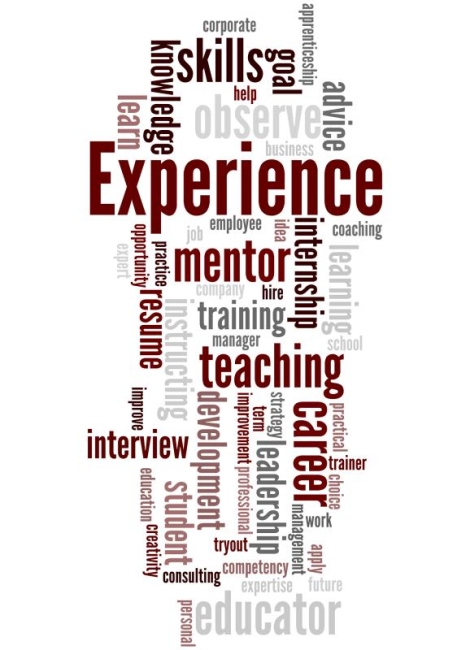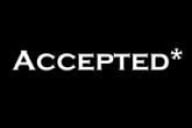You have /5 articles left.
Sign up for a free account or log in.

eyjafjallajokull/istock/getty images plus
What’s the best way to figure out if a career path is right for you? Well, of course, you may first want to read about it, study job descriptions and ask people who have followed such a path about their experiences. But, ultimately, how will you know unless you try it? Life design experts like Stanford University’s Bill Burnett and Dave Evans call the process of trying things out prototyping, borrowing a term used in engineering.
In my case, my first career was in the U.S. military, where I prototyped my potential career path as a military police officer and paratrooper. While I enjoyed many aspects about that career path—such as the leadership experience, the emphasis on camaraderie and teamwork, and the importance of developing your people as your most important resource—I also realized certain aspects of it weren’t a great fit for my lifestyle over the long term. That realization led me to examine another career plan that might be fulfilling and better fit my skills and interests—my plan A-prime, an alternative I was honestly excited about, as opposed to a backup or less attractive plan B. And that was to go back to graduate school for a Ph.D. and pursue an academic career.
Later, after prototyping an academic research career while serving in the role of a postdoctoral scholar, I discovered a new plan A-prime in academic administration: career and professional development, which is what I do now and find very fulfilling. But had I not tried each of these career paths out experientially, I would never have known if they were right for me or not. At each stage I have been able to learn the aspects of my current job that I love to do most, and I have carried those experiences with me to my next position to further expand and develop into new skills.
In their book, Designing Your Life: How to Build a Well-Lived, Joyful Life, Burnett and Evans suggest that the best way is to fail fast and fail forward. With that in mind, they suggest finding ways to try out aspects of the life or careers that you’re interested in so you can either cross them off or move them up the list of top possibilities—even if that means starting with baby steps.
For instance, if you are a scientist who thinks you’d really like marketing, consider if you can gain some experience in bite-size chunks to see if you like it before you jump into a full-on sales and marketing role straight from the bench. Could you be the social media marketing officer for a student club, volunteer to promote events for your department or get a small taste of that role in some other way first? If you are interested in a writing or editing career, could you write or edit a blog regularly or take on contract editing in small bits to see if you enjoy the process? If you aren’t certain you’re cut out for an industry position but are pretty sure you want a research-intensive career, could you do an industry postdoc, participate in an industry internship or simply visit a company site to see if you like the for-profit sector and industry atmosphere?
Experiential learning opportunities in career development for graduate and postdoctoral trainees are proliferating. Audra Van Wart and her colleagues have noted, “Experiential learning approaches can incorporate a vast spectrum of activities that provide hands-on experience and learning, both inside and outside a classroom setting … that are immersive or include an element of practicing or exercising a skill or set of skills.” They identify four categories of career and professional development experiential learning activities: job simulations, employer site visits, job shadowing and internships. Those different types of experiences can each give you a different perspective on what might be a good next move for you. Consider what level of knowledge you have to date in the area that interests you and what level of scaffolding (pre-knowledge, preparatory experiences or support) you might need to engage in a more immersive or intensive experience—one that would best advance you beyond the current phase of your career development.
After you’ve passed the reading-resources-about-a-possible-new-position stage, the talking-about-it-with-other-professionals stage and the exploring-job-ads stage, you may be plateauing and need a shove into the experiential learning world to accelerate your career exploration and progress. In fact, there are some fantastic experiential learning resources for graduate students and postdocs around career and professional development. An example is Intersect JobSims, which allows users to explore experiential learning activities developed by professionals in two dozen career fields, in collaboration with graduate career development professionals. Or, as a next step, consider attending a site visit program to gain an immersive experience of what that sector or company is like. If your institution doesn’t yet have a site visit program, consider helping to found one. Or check out the University of California, Berkeley’s Postdoc in Industry Exploration program, which you can read about in Nature, or the multi-institution ELITE Consortium, which organizes site visits.
As a capstone experience, you may even elect to search out opportunities to participate in an internship in the sector or career area of your choice. In fact, Patrick D. Brandt and colleagues recently found that participating even in high-dose professional development experiences like internships is not associated with loss of efficiency or productivity in your research and scholarship.
As we roll into a new year ahead, this is a great time to take stock of your own career journey and where you are positioned along the experiential spectrum. What’s a next phase in the coming year that you might be able to turn into an experiential learning opportunity? Start brainstorming possible connections, programs and timelines to plan your own experiential learning adventure now. The message is clear: experiential learning is worth the time to invest in prototyping your future. What are you waiting for?








